Sugar
Baby's food

Sugar is a type of simple carbohydrate your child’s body uses for energy. It is naturally present in fruits, vegetables, and milk, but it’s often also processed and added artificially to sweeten food.
Unfortunately, many children are getting too much of their sugar from unhealthy snacks and sugary drinks, which can lead to the build-up of harmful fat.
Good vs bad sugars
While natural sugars present in foods, such as milk, fruit, and vegetables are good for Your Child, foods with a lot of processed ‘added sugar’ and sweeteners provide more calories with very little nutritional value.
How sugar affects a child’s brain
Throughout the body, excess sugar is harmful. Even a single instance of elevated glucose in a child’s bloodstream can be harmful to the child’s brain, resulting in slowed cognitive function and deficits in memory and attention. This is because sugar has drug-like effects in the reward center of the brain. Along with salty and fatty foods, sugar can produce addiction-like effects in the human brain, leading to loss of self-control, overeating, and subsequent weight gain.
Bad sugars with different names
These added sugars are often given different names on food labels, which you should be aware of. Some of those names include:
- Agave nectar
- Cane sugar
- Invert sugar
- Sucrose
- Raw sugar
- Corn syrup
- Rice sugar
- Maltose
- Evaporated cane juice
- Fructose
- Malt syrup
- Glucose
Common foods children eat that contain added sugar
- Fizzy drinks
- Juice drinks
- Burger
- Cakes
- Pastries
- Biscuits
- Breakfast cereals
- Yogurts
- Sweets
- Chocolate
- Ice cream
Recommended sugar consumption for Your Child
The maximum daily amount of added sugar or other sweeteners for children are as follows:
- Ages 0 – 2: 0g
- Ages 4 – 6: 19g (5 cubes)
- Agesges 7 – 10: 24g (6 cubes)
- Older than 11: 30g (7 cubes)
Note that one can of Coca-Cola contains around 10 cubes alone.
The dangers of taking too much sugar
Eating a lot of foods with added sugars can cause health problems for children, and some of them include:
- Tooth decay: High sugar content can cause dental cavities.
- Harmful fats: Too much sugar can cause the build-up of harmful fats in children’s bodies. This fat can cause weight gain and increase the risk of serious diseases like type 2 diabetes.
- Heart disease and cancer: Eating too much sugar has been linked with the development of heart disease and certain forms of cancers.
Tips to reduce added sugar
- Offer fresh fruit for dessert instead of cakes, cookies, ice cream, and other sweetened foods
- Encourage your child to drink water or diluted fruit juices instead of sugary soda or sports drinks
- Always go for 100 percent juice that has no added sugar
- Don’t use sweets as a reward
- Keep ice cream, candies, and cookies treats for Sundays only
- Avoid the section of the supermarket where sugary foods are on display
Limiting the amount of added sugar Your Child consumes not only helps to protect them from sugar-related health problems but also ensures that they get the nutrients they need without exceeding their calorie limit.
Verified:
Dr. Piyawut Kreetapirom, MD. license no. 41578 (15 July 2021)



